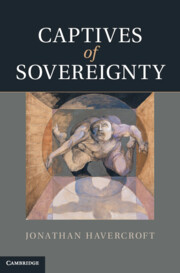7 - The claim of global community
from Part II
Published online by Cambridge University Press: 07 September 2011
Summary
In the previous two chapters I explored how to overcome the impasse presented by the normative critiques of sovereignty raised by Arendt, Foucault, Agamben, and Hardt and Negri. All five of these thinkers argue that sovereignty creates an unjust structure of domination. But, as we saw in the introduction, they are unable to present a clear non-sovereign alternative to political order. Chapters 2 through 4 demonstrated that the persistence of sovereignty in political thought is due to its utility in combating varieties of skepticism and its attendant political problems. In Chapters 5 and 6 I argued that the language as a form of life approach to philosophy developed by Wittgenstein, Austin, and Cavell provided an alternative response to skepticism that did not require a sovereign. In this chapter I return my attention to the architectonic critiques of sovereignty that I discussed in Chapter 1. These critiques of sovereignty have primarily developed in the discipline of international relations theory. Scholars from a variety of different theoretical perspectives have become dissatisfied with the concept of sovereignty for architectonic reasons. They believe that a political order grounded in the sovereignty of the state is insufficient to deal with a variety of pressing problems ranging from global climate change, to global economic inequality, to new modes of violence. As we saw in Chapter 1, a variety of alternative models have been proposed to deal with these problems, yet they tend to recreate the model of state sovereignty in one form or another.
- Type
- Chapter
- Information
- Captives of Sovereignty , pp. 197 - 230Publisher: Cambridge University PressPrint publication year: 2011



